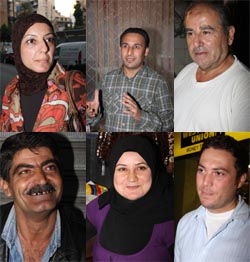 Written by Ray Hanania, Various sources estimate that there are between 3.5 and 4.5 million Arabs in America, with Christians a slight majority over Muslims. There are 7.5 million Muslims in America, but only about 22 percent are Arab and the largest segment are African American and Asian. There is little diversity in terms of their national Arab origins. The vast majority of Arab American officeholders are of Lebanese heritage. There are many reasons for this. The Lebanese were among the first to settle in the U.S. in large numbers. They are almost all Christian, allowing them to assimilate more easily into American society. Although there is a theoretical separation of church and state in America, oftentimes the fastest way to elective office is through church-supported political organizations. But other Arab nationalities are slowly winning office as more and more seek office. The common denominator seems to be that those succeeding in elections are trading-off ties to their home countries of origin with more local activism and community involvement. Some of the better known officeholders include U.S. Senator John Sununu (Palestinian origins and Lebanese heritage), and Congressmen Darrell Issa (California) and Ray LaHood (Illinois), all Republican. Arab Americans are represented in both parties, but the majorities tend to swing back and forth depending on the candidate and the issues in the Middle East. In 2000, for example, Arab Americans overwhelmingly voted Republican to support George W. Bush. In the election contest between Republican John McCain and Democrat Barack Obama, there seems to be a split with a majority of Christian Arabs supporting McCain and a majority of Muslims supporting Obama. Arab American voters share the same concerns as other Americans, from education to jobs to improving the economy. But they also have a special interest in American foreign policy towards the Middle East, and on that criteria, they share an overwhelming disappointment. They often base their choices in national elections, such as for president, on which candidate is "the lesser of two evils." Yet, when Americans across the country flock to the polls on Tuesday, Nov. 4, Arab Americans will be standing with them side-by-side in line to vote. There are more than 13 other Arab Americans who held office including four former U.S. Senators (all Lebanese), and nine congressmen including two women, Mary Rose Oakar, now national president of the American Arab Anti-Discrimination Committee (ADC), in Ohio’s 20th district, and Pat Danner of the 6th District in Missouri.
Written by Ray Hanania, Various sources estimate that there are between 3.5 and 4.5 million Arabs in America, with Christians a slight majority over Muslims. There are 7.5 million Muslims in America, but only about 22 percent are Arab and the largest segment are African American and Asian. There is little diversity in terms of their national Arab origins. The vast majority of Arab American officeholders are of Lebanese heritage. There are many reasons for this. The Lebanese were among the first to settle in the U.S. in large numbers. They are almost all Christian, allowing them to assimilate more easily into American society. Although there is a theoretical separation of church and state in America, oftentimes the fastest way to elective office is through church-supported political organizations. But other Arab nationalities are slowly winning office as more and more seek office. The common denominator seems to be that those succeeding in elections are trading-off ties to their home countries of origin with more local activism and community involvement. Some of the better known officeholders include U.S. Senator John Sununu (Palestinian origins and Lebanese heritage), and Congressmen Darrell Issa (California) and Ray LaHood (Illinois), all Republican. Arab Americans are represented in both parties, but the majorities tend to swing back and forth depending on the candidate and the issues in the Middle East. In 2000, for example, Arab Americans overwhelmingly voted Republican to support George W. Bush. In the election contest between Republican John McCain and Democrat Barack Obama, there seems to be a split with a majority of Christian Arabs supporting McCain and a majority of Muslims supporting Obama. Arab American voters share the same concerns as other Americans, from education to jobs to improving the economy. But they also have a special interest in American foreign policy towards the Middle East, and on that criteria, they share an overwhelming disappointment. They often base their choices in national elections, such as for president, on which candidate is "the lesser of two evils." Yet, when Americans across the country flock to the polls on Tuesday, Nov. 4, Arab Americans will be standing with them side-by-side in line to vote. There are more than 13 other Arab Americans who held office including four former U.S. Senators (all Lebanese), and nine congressmen including two women, Mary Rose Oakar, now national president of the American Arab Anti-Discrimination Committee (ADC), in Ohio’s 20th district, and Pat Danner of the 6th District in Missouri.
DAILY STAR – By Ghenwa Yehia, BEIRUT: Lebanese citizens are responding positively to the outcome of the US election, although some remain skeptical about Barack Obama’s promises to change American policy, The Daily Star learned after speaking to locals from Beirut. The shared opinion of many Lebanese is that Obama’s passion and personality offer hope for the future. Sanaa Itani, 40, followed the election closely as it played out over the past months. She instantly took a liking to Obama because he seemed genuine in his desire for change. "Every time I saw him on television I became more and more convinced of his genuine passion," she says. "Whether it is where he stands on certain issues or his policies I just intuitively feel like he means what he said. I think America made a good choice."
Like Itani, Hadi Haddad, a 51-year-old sewing supply store owner, says that Obama has an authentic spirit and truly believed in what he was campaigning for. The end result obviously reflects that he connected with the American people, Haddad says. "I heard a story of an 80-year-old American woman who waited hours in line to vote for Obama just because she really believed in what he was saying," Haddad explains. "You can’t fake that kind of passion. Obama would only be able to evoke that kind of passion in people if he himself believed in what he was saying." Other people think that despite all of Obama’s promises during the campaign, it is still much too early to tell whether he will make good on his promise for change. "We haven’t seen anything of him yet," says Jamal Hussein, 50. "For example, he said in his campaign, in regards to foreign relations, that he will be the friend of any country that is a friend to America. Now this is what he says, but we haven’t seen him in action yet to see if he spoke the truth." Kamil Harb, a 70-year-old owner of a laundromat, agrees with Hussein. "Right now all of these are just words," he says of campaign promises. He even goes a step farther to categorize Obama among the ranks of all other politicians: liars.
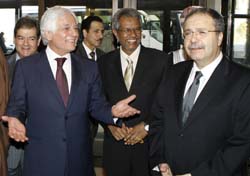 By Nicholas Kimbrell, BEIRUT: Although Syrian-Lebanese relations appear to be improving, they have been complicated by the sparring between the Syrian government and members of Lebanon’s ruling March 14 alliance over allegations about the funding of a militant Islamist group, analysts told The Daily Star Monday. Prior to President Michel Sleiman’s landmark visit to Syria in mid-August, the two countries had agreed to establish diplomatic relations. In October, Foreign Minister Fawzi Salloukh met with his Syrian counterpart Walid Moallem in Damascus to cement the formalization of ties. Interior Minster Ziyad Baroud traveled to Damascus last week, returning with a bilateral security agreement, and Information Minster Tarek Mitri was received in Damascus Sunday for a joint meeting of the Arab Information Committee. Speaking from Damascus, Mitri called the Syrian-Lebanese relationship "strong," adding that the relationship was based on "mutual respect and common interests."
By Nicholas Kimbrell, BEIRUT: Although Syrian-Lebanese relations appear to be improving, they have been complicated by the sparring between the Syrian government and members of Lebanon’s ruling March 14 alliance over allegations about the funding of a militant Islamist group, analysts told The Daily Star Monday. Prior to President Michel Sleiman’s landmark visit to Syria in mid-August, the two countries had agreed to establish diplomatic relations. In October, Foreign Minister Fawzi Salloukh met with his Syrian counterpart Walid Moallem in Damascus to cement the formalization of ties. Interior Minster Ziyad Baroud traveled to Damascus last week, returning with a bilateral security agreement, and Information Minster Tarek Mitri was received in Damascus Sunday for a joint meeting of the Arab Information Committee. Speaking from Damascus, Mitri called the Syrian-Lebanese relationship "strong," adding that the relationship was based on "mutual respect and common interests." 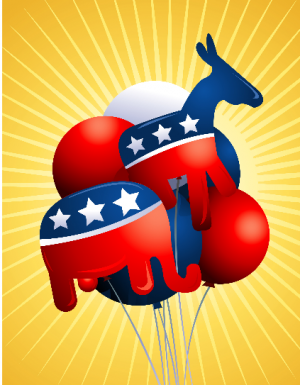 Malek el Khazen, November 2008 – Let us ask ourselves this first question: How did the Republicans fail? or did the Republicans really fail? Let me rephrase this question to what was different that made the Democrats win? The answer seems easy and yes it is logical, and the same process was applied in France, in Zimbabwe and many other countries during election within these last 2 years. What has made the difference in all of these elections are what we will call in this article the silent citizens but not so silent anymore. They are the new registered voters. There is also another variable that all of these candidates were successful enough in convincing their citizens on the ASSUMPTION of CHANGE, HOPE, TRUST and EXPERIENCE.
Malek el Khazen, November 2008 – Let us ask ourselves this first question: How did the Republicans fail? or did the Republicans really fail? Let me rephrase this question to what was different that made the Democrats win? The answer seems easy and yes it is logical, and the same process was applied in France, in Zimbabwe and many other countries during election within these last 2 years. What has made the difference in all of these elections are what we will call in this article the silent citizens but not so silent anymore. They are the new registered voters. There is also another variable that all of these candidates were successful enough in convincing their citizens on the ASSUMPTION of CHANGE, HOPE, TRUST and EXPERIENCE. Written by Ray Hanania, Various sources estimate that there are between 3.5 and 4.5 million Arabs in America, with Christians a slight majority over Muslims. There are 7.5 million Muslims in America, but only about 22 percent are Arab and the largest segment are African American and Asian. There is little diversity in terms of their national Arab origins. The vast majority of Arab American officeholders are of Lebanese heritage. There are many reasons for this. The Lebanese were among the first to settle in the U.S. in large numbers. They are almost all Christian, allowing them to assimilate more easily into American society. Although there is a theoretical separation of church and state in America, oftentimes the fastest way to elective office is through church-supported political organizations. But other Arab nationalities are slowly winning office as more and more seek office. The common denominator seems to be that those succeeding in elections are trading-off ties to their home countries of origin with more local activism and community involvement. Some of the better known officeholders include U.S. Senator John Sununu (Palestinian origins and Lebanese heritage), and Congressmen Darrell Issa (California) and Ray LaHood (Illinois), all Republican. Arab Americans are represented in both parties, but the majorities tend to swing back and forth depending on the candidate and the issues in the Middle East. In 2000, for example, Arab Americans overwhelmingly voted Republican to support George W. Bush. In the election contest between Republican John McCain and Democrat Barack Obama, there seems to be a split with a majority of Christian Arabs supporting McCain and a majority of Muslims supporting Obama. Arab American voters share the same concerns as other Americans, from education to jobs to improving the economy. But they also have a special interest in American foreign policy towards the Middle East, and on that criteria, they share an overwhelming disappointment. They often base their choices in national elections, such as for president, on which candidate is "the lesser of two evils." Yet, when Americans across the country flock to the polls on Tuesday, Nov. 4, Arab Americans will be standing with them side-by-side in line to vote. There are more than 13 other Arab Americans who held office including four former U.S. Senators (all Lebanese), and nine congressmen including two women, Mary Rose Oakar, now national president of the American Arab Anti-Discrimination Committee (ADC), in Ohio’s 20th district, and Pat Danner of the 6th District in Missouri.
Written by Ray Hanania, Various sources estimate that there are between 3.5 and 4.5 million Arabs in America, with Christians a slight majority over Muslims. There are 7.5 million Muslims in America, but only about 22 percent are Arab and the largest segment are African American and Asian. There is little diversity in terms of their national Arab origins. The vast majority of Arab American officeholders are of Lebanese heritage. There are many reasons for this. The Lebanese were among the first to settle in the U.S. in large numbers. They are almost all Christian, allowing them to assimilate more easily into American society. Although there is a theoretical separation of church and state in America, oftentimes the fastest way to elective office is through church-supported political organizations. But other Arab nationalities are slowly winning office as more and more seek office. The common denominator seems to be that those succeeding in elections are trading-off ties to their home countries of origin with more local activism and community involvement. Some of the better known officeholders include U.S. Senator John Sununu (Palestinian origins and Lebanese heritage), and Congressmen Darrell Issa (California) and Ray LaHood (Illinois), all Republican. Arab Americans are represented in both parties, but the majorities tend to swing back and forth depending on the candidate and the issues in the Middle East. In 2000, for example, Arab Americans overwhelmingly voted Republican to support George W. Bush. In the election contest between Republican John McCain and Democrat Barack Obama, there seems to be a split with a majority of Christian Arabs supporting McCain and a majority of Muslims supporting Obama. Arab American voters share the same concerns as other Americans, from education to jobs to improving the economy. But they also have a special interest in American foreign policy towards the Middle East, and on that criteria, they share an overwhelming disappointment. They often base their choices in national elections, such as for president, on which candidate is "the lesser of two evils." Yet, when Americans across the country flock to the polls on Tuesday, Nov. 4, Arab Americans will be standing with them side-by-side in line to vote. There are more than 13 other Arab Americans who held office including four former U.S. Senators (all Lebanese), and nine congressmen including two women, Mary Rose Oakar, now national president of the American Arab Anti-Discrimination Committee (ADC), in Ohio’s 20th district, and Pat Danner of the 6th District in Missouri.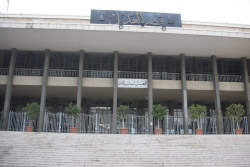 By Muhamad Mugraby, There is little doubt that Lebanon has no future as an independent and democratic political entity without the establishment of, and full respect for, the rule of law. The question is: Which rule of law? A rule of law on the legal tradition which Lebanon borrowed from Western Europe, which may be referred to as the "civil rule of law," or a rule of law based on Lebanon’s pre-statehood and original tradition of Islamic law, which could correctly be called the "Islamic rule of law?" The failure of the civil rule of law to take hold would make it inevitable for the Islamic rule of law to take over. Among the most elementary requirements for the civil rule of law which Lebanon had to observe is the development of a body of statutes sanctioned by a legitimate legislature, constitutionally established (i. e. a duly elected parliament). This task has been mostly fulfilled by borrowing and Arabizing text from French law. But so far many other necessary requirements have not been met, such as, by way of illustration:
By Muhamad Mugraby, There is little doubt that Lebanon has no future as an independent and democratic political entity without the establishment of, and full respect for, the rule of law. The question is: Which rule of law? A rule of law on the legal tradition which Lebanon borrowed from Western Europe, which may be referred to as the "civil rule of law," or a rule of law based on Lebanon’s pre-statehood and original tradition of Islamic law, which could correctly be called the "Islamic rule of law?" The failure of the civil rule of law to take hold would make it inevitable for the Islamic rule of law to take over. Among the most elementary requirements for the civil rule of law which Lebanon had to observe is the development of a body of statutes sanctioned by a legitimate legislature, constitutionally established (i. e. a duly elected parliament). This task has been mostly fulfilled by borrowing and Arabizing text from French law. But so far many other necessary requirements have not been met, such as, by way of illustration: 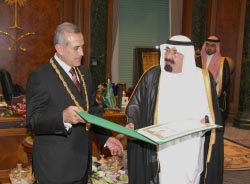 Lebanese President Michel Sleiman on Monday urged Saudi entrepreneurs to invest in his country during his first visit to oil-rich Saudi Arabia since his election in May. Addressing business leaders at the Jeddah Chamber of Commerce and Industry, Sleiman urged them to "boost their investments" in Lebanon, which offers "guarantees and facilities" for investors, the official Saudi Press Agency (SPA) reported. Lebanon has formed a committee to assess the losses incurred by Saudi investors during the political crisis his country went through in the past few years, Sleiman said, thanking Saudi Arabia for what he described as its constant support for Lebanon. Sleiman, a former commander of the Lebanese Armed Forces, was elected president in May after Lebanon’s rival political factions struck an Arab-brokered deal in the Qatari capital, Doha, to end an 18-month political crisis that had brought the country to the brink of civil war.
Lebanese President Michel Sleiman on Monday urged Saudi entrepreneurs to invest in his country during his first visit to oil-rich Saudi Arabia since his election in May. Addressing business leaders at the Jeddah Chamber of Commerce and Industry, Sleiman urged them to "boost their investments" in Lebanon, which offers "guarantees and facilities" for investors, the official Saudi Press Agency (SPA) reported. Lebanon has formed a committee to assess the losses incurred by Saudi investors during the political crisis his country went through in the past few years, Sleiman said, thanking Saudi Arabia for what he described as its constant support for Lebanon. Sleiman, a former commander of the Lebanese Armed Forces, was elected president in May after Lebanon’s rival political factions struck an Arab-brokered deal in the Qatari capital, Doha, to end an 18-month political crisis that had brought the country to the brink of civil war. 


